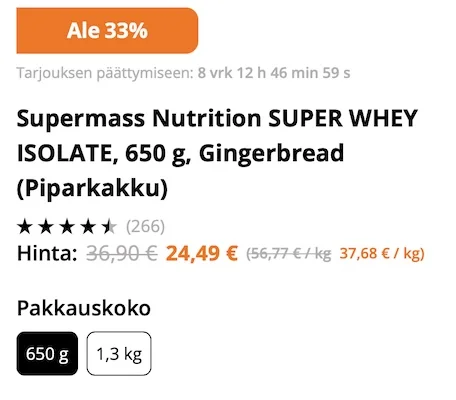Chrysin
A bioflavonoid called chrysin has shown potential as a natural aromatase-inhibitor. Chrysin can be extracted from various plants. Body builders have used it as a testosterone boosting supplement. The problem with chrysin is that because of its poor absorption into the bloodstream, it has not produced the testosterone enhancing effects users expect. In a study published in Biochemical Pharmacology (1999, Vol.58), the specific mechanisms of chrysin's absorption impairment were identified, which infers that the addition of a pepper extract (piperine) could significantly enhance the bioavailability of chrysin. Pilot studies have found that when chrysin is combined with piperine, reductions in serum estrogen (estradiol) and increases in total and free testosterone result in 30 days. Aromatase-inhibiting drugs are used to treat women with estrogen-dependant breast cancers. The rationale for this therapy is that estrogen is produced by fat cells via a process known as aromatization. Aging men often have excess aromatase enzyme activity, and the result is that too much of their testosterone is "aromatized" into estrogen. In a study published in the Journal of Steroid Biochemical Molecular Biology (1993;Vol 46, No 3), chrysin and 10 other flavonoids were compared to an aromatase-inhibiting drug (aminoglutethimide). The study tested the aromatase-inhibiting effects of these natural flavonoids (such as genistein, rutin, tea catechins, etc.) in human fat cell cultures. Chrysin was the most potent aromatase-inhibitor, and was shown to be similar in potency and effectiveness to the aromatase-inhibiting drug. The scientists conducting the study concluded by stating that the aromatase-inhibiting effects of certain flavonoids may contribute to the cancer preventive effects of plant-based diets. Two recent studies have identified specific mechanisms by which chrysin inhibits aromatase in human cells. These studies demonstrate that chrysin is a more potent inhibitor of the aromatase enzyme than phyto-estrogens and other flavonoids that are known to have aromatase-inhibiting properties (Arch Pharm Res 1999 Jun;22(3):309-12; J Steroid Biochem Mol Biol 1997 Apr;61(3-6):107-15). The purpose of these studies was to ascertain which fruits and vegetables should be included in the diet of postmenopausal women to reduce the incidence of breast cancer. Excess levels of mutagenic forms of estrogen have been linked to a greater risk of breast cancer, and scientists are studying dietary means of naturally reducing levels of these dangerous estrogens. Flavonoids such as chrysin are of considerable interest because they suppress excess estrogen via their aromatase-inhibiting properties. While this cancer preventing effect is most important for women, inhibiting aromatase in aging men has tremendous potential for naturally suppressing excess estrogen while boosting low levels of testosterone to a youthful state.
Since chrysin is not a patentable drug, don't expect to see a lot of human research documenting its effects. There are lots of FDA approved drugs that inhibit aromatase (such as Arimidex), and there is not much economic interest in finding natural ways of replacing these drugs. While prescription aromatase-inhibiting drugs are relatively free of side effects, aging men who are seeking to gain control over their sex hormone levels often prefer natural sources, rather than trying to convince a physician to prescribe a drug (such as Arimidex) that is not yet approved by the FDA as an anti-aging therapy. (Arimidex is prescribed to estrogen-dependant breast cancer patients to prevent testosterone and other hormones in the body from converting, i.e. aromatasing, into estrogen.)
An advantage to using plant extracts to boost testosterone in lieu of drugs is that the plant extracts have ancillary health benefits. Chrysin, for example, is a potent antioxidant that possesses vitamin-like effects in the body. It has been shown to induce an anti-inflammatory effect, possibly through inhibition of the enzymes 5-lipoxygenase and cyclooxygenase inflammation pathways. Aging is being increasingly viewed as a pro-inflammatory process, and agents that inhibit chronic inflammation may protect against diseases as diverse as atherosclerosis, senility and aortic valve stenosis. Chrysin is one of many flavonoids being studied as a phyto-extract that may prevent some forms of cancer. If chrysin can boost free testosterone in the aging male by inhibiting the aromatase enzyme, this would provide men with a low cost natural supplement that could provide the dual anti-aging benefits of testosterone replacement and aromatase-inhibiting drug therapy.
As previously discussed, boosting free testosterone levels can have a dramatic effect on sex drive, performance and satisfaction. Pilot studies indicate that chrysin increases total and free testosterone levels in the majority of men who take it with piperine.
Chrysin has one other property that could add to its libido-enhancing potential. A major cause of sexual dissatisfaction among men is work-related stress and anxiety. Another problem some men have is "sexual performance anxiety" that prevents them from being able to achieve erections when they are expected to. In a study published in Pharmacology Biochemistry and Behavior (1994, Vol 47), mice were injected with diazepam (Valium), chrysin or placebo to evaluate the effects these substances had on anxiety and performance levels. Chrysin was shown to produce anti-anxiety effects comparable with diazepam, but without sedation and muscle relaxation. In other words, chrysin produced a relaxing effect in the brain, but with no impairment of motor activity. The mechanism of action of chrysin was compared to diazepam, and it was shown that unlike diazepam, chrysin can reduce anxiety without inducing the common side-effects associated with benzodiazepine drugs.
A common problem with benzodiazepine drugs is memory impairment. In a study published in a 1997 issue of Pharmacology Biochemistry and Behavior (Vol 58, No 4), chrysin displayed potent anti-anxiety effects in rats, but did not interfere with cognitive performance. In this study, diazepam was shown to inhibit neurological function, but chrysin (and other anti-anxiety flavonoids) had no effect on training or test session performance. The scientists conducting this study pointed out that chrysin selectively inhibits anxiety in the brain but, unlike diazepam, does not induce the cognitive impairment.
Chrysin may therefore offer libido-enhancing effects in the aging male by:
- Increasing free testosterone, - Decreasing excess estrogen, - Producing a safe anti-anxiety effect.
Chrysin is being sold to body builders by commercial supplement companies that do not know if their product is favorably modulating testosterone and estrogen levels in men. The Life Extension Foundation, on the other hand, has conducted meticulous studies to evaluate the effects of chrysin (combined with piperine to facilitate absorption) on aging men. These studies have produced some impressive preliminary data, and ongoing research will be reported in future issues of Life Extension magazine.








